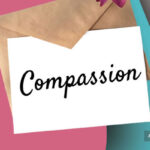In order to understand Ethical Resilience, let’s start by defining the two interlinked terms. Ethics are the norms of our behaviour and actions following what‘s right. Aldo Leopold has very aptly said, ‚Ethical behaviour is doing the right thing when no one else is watching – even when doing the wrong thing is legal.‛
The Oxford English dictionary defines resilience as: the capacity to recover quickly from difficulties. In this sense, ethical resilience entails having a clear inner compass that never deviates from what’s right even if there are external pressures, personal discomforts, loses or contemporary trends.
Many organizations take pride in ‘being seen as doing the right thing’. Prima facie, there is nothing objectionable in that statement. It appears as a perfect justifiable institutional sentiment. But ‚Being seen to be doing the right thing‛ is about compliance – not violating law, not getting caught, passing the audit. It’s focused on image over substance.
On the other hand, a true desire to be ethical, really wanting to do the right thing, is something altogether different, which leads us to the importance of commitment. The test of real ethics is whether we are committed to doing what’s right.
Creating an ethically resilience culture requires an organisation-wide commitment that starts at the top and a recognition that being truly ethical sometimes requires going beyond mere compliance. The defining policy of such an organization is to follow the right path despite its possible adverse consequences.
The resulting approach of decision makers of an organization can take any of the four paths, termed as the continuum of ethical approach. Across an organization, all four paths can be simultaneously operating, depending on the decision making process employed at the time.
There are four possible paths adopted by various organizations.
- Unethical: an approach without morals, where anything is acceptable, , and do whatever to win, including breaking the laws,
e.g. corruption, bribing, cheating.
- Compliant: an approach that works within the parameters of law and code of practice of the organization.
- Progressively ethical: an approach that works beyond compliance that puts into place propositions such as sustainability and CSR.
- Ethically resilient: an approach where ethics is the core of every aspect of the organization from purpose, culture, values, processes and operations – do what’s right and cause no harm or wrong. No matter what happens, the ethical path is not abandoned.


